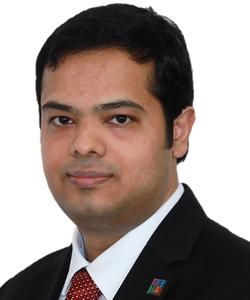
A perspective from Dr Mostafa Moonir Shawrav, Chair of the association for alumni of the Marie Skłodowska-Curie Actions (MSCA) programme, the European Union’s flagship fund for doctoral education and postdoctoral training of researchers. Members of the Marie Curie Alumni Association (MCAA) either currently benefit or have in the past benefitted from MSCA funding. They share a strong background in research, while their career paths are diverse and touch all economic sectors.
Looking back at the past two years, it is obvious that COVID-19 has had a significant impact on human life. Research, researchers, research performing organisations and research infrastructures were no different. The following themes are important to focus on:
Adverse impact on research and researchers
At the beginning of the pandemic, due to several restrictions (lockdown, social distancing), the ability to perform research was severely perturbed.
Ability to perform research was severely perturbed
Almost all the laboratory-based research, research on human subjects and field research was stopped or severely limited, affecting all fields, from life to social sciences.
A clear demarcation between working hours and personal time was a long-time issue for many researchers, the pandemic pushed it to the extreme. These extreme working conditions, combined with uncertainty and lack of social support also led to mental health deterioration and severely harmed the planned career paths of researchers. The true magnitude of the negative impact is still unknown and gradually being surveyed, but is unquestionable as shown by UKRI, Young Academy of Europe etc.
This problem was exacerbated for mobile researchers working in a foreign country and researchers with care responsibilities, very often the younger researchers. The challenges were especially aggravated for female researchers, parents with small children with no babysitting or kindergarden options, disabled researchers, and researchers with mental health issues such as depression, stress and loneliness due to social isolation and extra tasks.
Challenges were especially aggravated for female researchers, parents with small children with no babysitting or kindergarden options, disabled researchers, and researchers with mental health issues
The pandemic also revealed holes in the healthcare systems when normal doctor visits and therapies were not as accessible as before, which affected the whole population but in particular researchers, known to suffer from increased mental health challenges. The need for better infrastructure for reporting and supporting researchers’ mental health became obvious.
Facing so many difficulties, many of the affected mobile researchers got together to make a petition for paid extensions of Marie Skłodowska-Curie Actions (MSCA) projects. In support, the Marie Curie Alumni Association (MCAA) urged funding agencies to propose solutions. Once more, the system revealed lacunae when many agencies were not able to provide the support that their fellows were expecting despite contingency measures in place.
But, thankfully, not all impacts were negative.
Enhancing collaboration, Encouraged Open Science
Necessity being the mother of invention, the COVID pandemic encouraged people to invent new ways to work. Researchers were very quick to share data using various pre-print and open research platforms. By sharing data with others, researchers could collaborate beyond geographic and institutional boundaries and could support the fight against the virus. This strategy enhanced the global research and cooperation landscape, and was recently recognised by the Marseille declaration on International Cooperation in Research & Innovation.
Secondly, the majority of the publishers removed the paywall barriers for research data or publications related to COVID-19. However, that logically and rightfully prompted a question from Science Europe president Marc Schiltz during the Open Science European Conference (OSEC) to the publishers: if the pandemic results could be open access, why not those of other research fields focusing on existential threats, like climate change and the fight against cancer?
Finally, the peer review process, especially the open peer review process, received increasing attention.
Another set of vital stakeholders who stepped up were the funding organisations, who rightfully introduced virtual mobility for distant researchers. This will allow researchers to work with colleagues beyond their borders, without leaving their place of residence.
Some large laboratories and research institutes allowed samples to be sent to them which helped a great deal. I truly hope that this will continue in future and that the usage of the research infrastructure will be optimised.
Many researchers found innovative ways to pursue their research, despite the several restrictions and limitations
Many researchers found innovative ways to pursue their research, despite the several restrictions and limitations. You can find some of their stories in the MCAA Newsletter of 29 December 2021.
What does the future hold?
Firstly, in order to infer for the future, we need to capture past and present data comprehensively and determine the true extent of the pandemic’s impact on researchers with various backgrounds, family and work status, and physical-mental-social health condition. Hence the past President of the ERC, Professor Jean Pierre Bourguignon, highlighting that the pandemic may have a significant adverse impact on early career researchers, is planning an event on the topic. In order to fulfill this goal and support researchers around the world, MCAA launched a new survey to capture current challenges faced by researchers, which can be filled out by any researcher regardless of their career stage or field.
Researchers, research managers and associated organisations need to rethink the strategy for collaboration
Secondly, researchers, research managers and associated organisations need to rethink the strategy for collaboration. The pandemic challenged our traditional working culture. We learned that, while organising events and conferences, it is possible to include a diverse group of attendees from all parts of the world. The technology is there but we need to accept and adopt the solutions.
Thirdly, while we bring systematic changes, it is crucial to understand that researchers are the frontline workers to face all the societal challenges. The current ERC President, Professor Maria Leptin, rightly pointed out why European Union countries need to invest more in Research and Investment (R&I) during her speech at the Science Business Annual Network Conference. We can only expect to produce desired outcomes if we create opportunities for research. This includes spending more than 3% of GDP in R&I, ensuring proper research assessment, including open science, understanding the need for diversity and inclusion in academia, as well as ensuring academic freedom.
It created opportunities and gave us food for thought
Finally, only together can we advance further. Though the pandemic was an extremely disruptive experience, it created opportunities and gave us food for thoughtso that we can bring structural changes in research. Now, the question is if and how we take this learning to the next level. To follow some detailed discussions of this question, I invite you to investigate the outcomes of the very recent 2022 Marie Curie Alumni Association Annual Conference where the theme was “Sustainability and the post-pandemic workplace”.
 Mostafa Moonir Shawrav
Mostafa Moonir Shawrav
Dr Mostafa Moonir Shawrav has been the Chair of Marie Curie Alumni Association (MCAA) since 2020, having previously been a Vice-Chair from 2018 to 2020. His involvement in MCAA since its establishment helped him understand the challenges faced by researchers from different career stages and various scientific and geographical backgrounds. This inspired him to become active and organize training for mobile researchers in sustainable research careers, careers outside academia, science diplomacy and entrepreneurship. He was involved in several policy initiatives including the Knowledge Ecosystem project, MSCA Supervision Guidelines and many others. After working over 10 years in an academic environment in Austria, Belgium and the Netherlands, he moved into the semiconductor industry. He worked and led frontier projects in academia, nonprofit and business sectors funded by the ECSEL Joint Undertaking, Horizon 2020, ERC & MSCA. He is a fellow of Royal Microscopical Society. |





